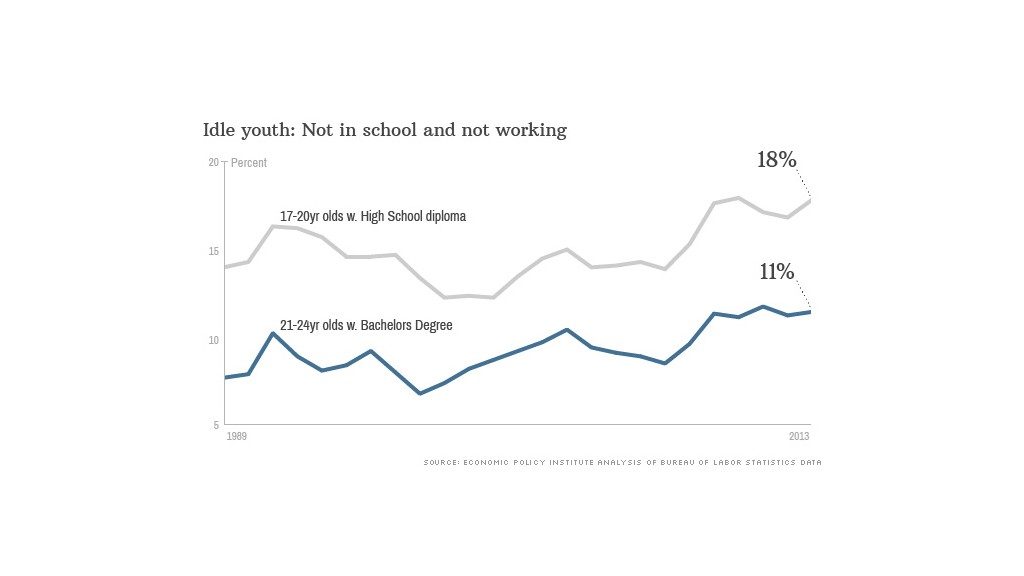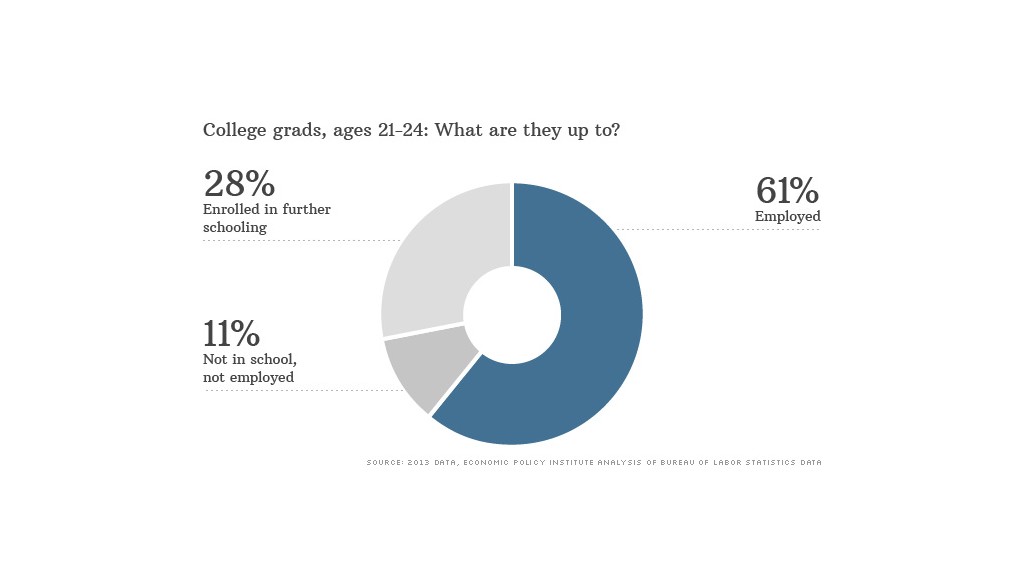
Class of 2014: Get ready for a rocky job market.
It's been about five years since the recession officially ended, but there is still a sizable group of young high school and college grads who are idle. Known as "disconnected youth," these under 25-year-olds are neither working, nor enrolled in college.
Roughly 1 in 5 young high school graduates and 1 in 10 recent college graduates fell into these ranks last year, according to a new report by the Economic Policy Institute, a liberal think tank.
The researchers used government census data to come to some rather depressing conclusions for the class of 2014. Young people graduating from high school or college in the next few months will "join a sizable backlog of unemployed college graduates from the last five graduating classes in an extremely difficult job market," they say.
Share: Not working, not in school? What are you doing instead?
The growing ranks of "disconnected youth" make for a worrisome trend, confirmed by earlier studies conducted by the Brookings Institution and the Social Science Research Council.
While the three research groups crunched the data separately, the conclusions all remain the same: Being "disconnected" is a setback that could have a lasting impact on millennials' career tracks and lifetime earnings.
So if they're not working or studying, what are these young people doing instead?
Unfortunately, the data doesn't get very specific. Many are actively looking for jobs, while others may be taking care of family, volunteering, living with a disability that makes it difficult to work, or yes... vegging out playing video games.

As for those who do get jobs, they are not immune from the ongoing impact of the jobs crisis, either.
For starters, even the lucky graduates who find jobs are starting out with wages lower than the generation that came before them. Wages for young graduates have been falling for over a decade, according to EPI.
Related: Sandberg's latest: 'Lean In: For Graduates'
Recent high school grads (ages 17 to 20) earn hourly wages around $9.82. After adjusting for inflation, that's 11% lower than they earned in 2000.
For recent college grads between the ages of 21 and 24, average earnings are around $16.99, or 8% lower than they were in 2007.
These declines represent a substantial amount of money. If wages had merely remained about the same, for example, today's young graduates would be earning about $2,500 to $3,000 more per year.
Meanwhile, job benefits are also on the decline. In 2000, about 53% of newly employed college grads received health insurance from their job. Now only 31% do.
It's possible to overcome these setbacks as young workers move up the career ladder, but the process often takes 10 to 15 years, the report warns.
"The evidence suggests that because of their unlucky timing -- in other words, through absolutely no fault of their own -- this cohort is very likely to fare poorly for at least the next decade," it says.


